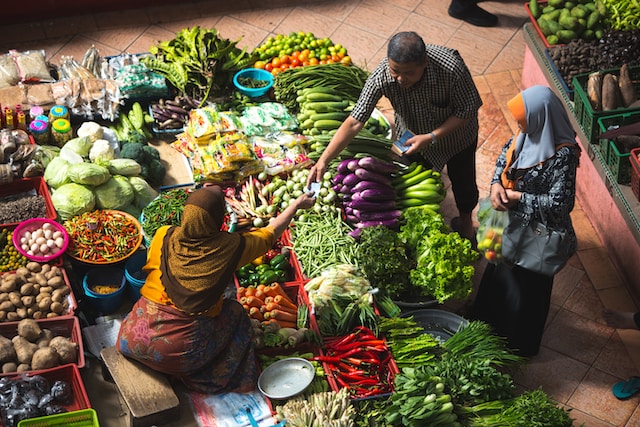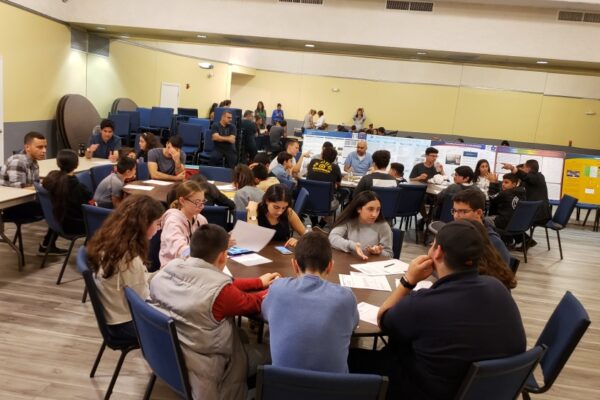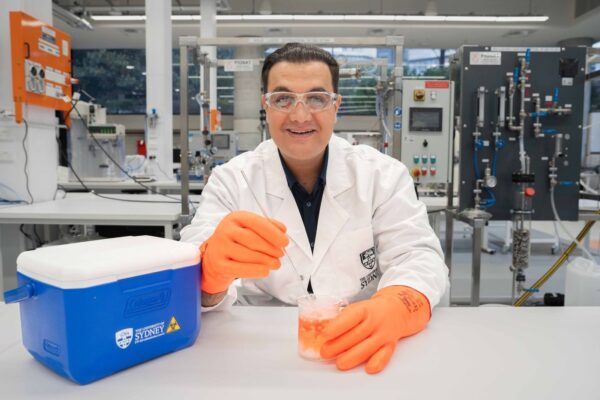The World Food System Center (WFSC) at ETH Zurich is a beacon for those passionate about transforming global food systems. Their quarterly newsletter is more than just an update—it’s a window into groundbreaking research, inspiring education programs, and community-driven efforts to make food systems sustainable, equitable, and resilient. As someone who’s followed their work closely, I’ve always been struck by how their newsletter weaves together complex science with real-world impact, making it a must-read for anyone invested in the future of food. In this article, we’ll explore what makes the WFSC newsletter a vital resource, why it matters, and how you can tap into its wealth of knowledge.
What Is the World Food System Center Newsletter?
The WFSC newsletter, published quarterly by ETH Zurich’s World Food System Center, delivers updates on research, education, and outreach activities aimed at addressing global food system challenges. It’s a curated blend of insights from scientists, stories from alumni, and invitations to events like symposiums and summer schools. Think of it as a friendly guide that breaks down complex topics like food security and sustainability into digestible, actionable updates.
Why It’s More Than Just a Newsletter
This isn’t your typical email blast. The newsletter connects a global community of over 2,000 subscribers, from researchers to policymakers, with the latest advancements in sustainable agriculture, nutrition, and food waste reduction. It’s like having a front-row seat to the innovations shaping how we grow, distribute, and consume food.
The Mission Behind the Newsletter
The WFSC’s mission is to foster sustainable food systems through interdisciplinary collaboration, and the newsletter embodies this goal. It highlights projects that tackle environmental, social, and economic challenges, from farm to table. Reading it feels like joining a global conversation about feeding the world without harming the planet.
A Focus on Real-World Impact
Each issue showcases tangible outcomes—like how a new farming technique reduced waste in India or how students in the WFSC’s summer school designed solutions for local farmers. These stories make the newsletter relatable, showing that change is possible, one project at a time.
Key Features of the WFSC Newsletter
The newsletter is packed with value, offering a mix of research updates, educational insights, and community stories. Here’s what you can expect in each issue:
- Research Highlights: Updates on cutting-edge studies, like digitalization in agriculture or climate-resilient crops.
- Education Spotlights: Stories from the WFSC’s summer school and alumni network, inspiring the next generation of food system leaders.
- Event Invitations: Details on symposiums, workshops, and webinars where you can engage with experts.
- Alumni Stories: Personal accounts from the WFSC’s 350+ alumni, sharing how they’re driving change worldwide.
- Practical Resources: Links to fact sheets, reports, and blogs that make complex topics accessible.
Why These Features Matter
This structure ensures the newsletter appeals to diverse audiences—whether you’re a scientist, a student, or just someone curious about sustainable food. It’s like a Swiss Army knife for food system knowledge: versatile, practical, and always useful.
The Newsletter’s Role in Food System Transformation
The WFSC newsletter doesn’t just inform—it inspires action. By sharing stories of collaboration between researchers, farmers, and policymakers, it shows how interconnected efforts can address big issues like food insecurity and climate change. For example, I remember reading about a project in their July 2023 issue where alumni worked with farmers in Sicily to promote organic farming. It was a reminder that small, local actions can ripple out to create global change.
Connecting Research to Reality
The newsletter bridges the gap between academic research and real-world application. It highlights projects like ETH Studio AgroFood, which explores how digital tools can help Swiss farmers adapt to modern challenges. These stories make you feel like you’re part of the solution, not just a bystander.
How to Subscribe to the WFSC Newsletter
Getting the newsletter in your inbox is straightforward. Head to the WFSC’s official website (worldfoodsystem.ethz.ch) and sign up with your email, first name, and last name. It’s free, and you can unsubscribe anytime by contacting the WFSC Communications Manager or using the unsubscribe link in each issue.
Step-by-Step Guide to Signing Up
- Visit worldfoodsystem.ethz.ch.
- Navigate to the “Newsletter” section under “News.”
- Enter your email and name in the sign-up form.
- Confirm your subscription via the email link.
- Enjoy quarterly updates starting with the next issue!
Benefits of Subscribing
Subscribing to the WFSC newsletter comes with perks that go beyond staying informed. Here’s a quick breakdown:
| Benefit | Description |
|---|---|
| Stay Updated | Get the latest on food system research and events. |
| Network Opportunities | Connect with a global community of 2,000+ subscribers. |
| Actionable Insights | Learn practical solutions for sustainable food practices. |
| Exclusive Invitations | Access WFSC events like symposiums and workshops. |
Pros and Cons of Subscribing
Pros:
- Free and easy to join.
- Packed with expert insights and real-world stories.
- Connects you to a global network of food system innovators.
Cons:
- Quarterly frequency might feel too infrequent for some.
- Content can be technical, requiring some background knowledge.
Comparing the WFSC Newsletter to Other Food System Resources
To understand the WFSC newsletter’s unique value, let’s compare it to other food system publications:
| Feature | WFSC Newsletter | Foodwise Newsletter | FAO Publications |
|---|---|---|---|
| Focus | Sustainable food systems research and education | Local food and farmers’ markets | Global food security and policy |
| Frequency | Quarterly | Monthly | Varies (reports, newsletters) |
| Audience | Researchers, students, policymakers | General public, food enthusiasts | Governments, NGOs |
| Accessibility | Free, easy sign-up | Free, opt-in | Free, but often technical |
The WFSC newsletter stands out for its academic rigor combined with storytelling that resonates with a broad audience. Unlike Foodwise’s community-focused updates or the FAO’s policy-heavy reports, the WFSC strikes a balance between science and relatability.
Why WFSC Wins for Engaged Readers
If you’re someone who wants to dig into the “why” and “how” of food system change, the WFSC newsletter is your best bet. It’s like having a mentor who’s both a scientist and a storyteller, guiding you through the complexities of food systems with clarity and passion.
People Also Ask (PAA) Section
Below are real questions from Google’s “People Also Ask” feature, tailored to the WFSC newsletter and food systems:
What is the World Food System Center?
The WFSC is a research hub at ETH Zurich focused on sustainable food systems. It supports interdisciplinary research, education, and outreach to address challenges like food security and environmental sustainability. The newsletter is a key tool for sharing these efforts with the world.
How can I stay updated on food system innovations?
Subscribe to the WFSC newsletter at worldfoodsystem.ethz.ch for quarterly updates on research, events, and alumni stories. You can also follow their LinkedIn or Bluesky accounts for real-time updates.
What are the best resources for learning about sustainable food systems?
The WFSC newsletter is a top resource, offering research insights and practical stories. Other great options include Foodwise’s newsletter for local food updates and FAO’s reports for global perspectives.
How does the WFSC contribute to global food security?
Through research, education, and outreach, the WFSC tackles issues like food waste, climate resilience, and nutrition. The newsletter highlights these efforts, showcasing projects that drive real change.
The Emotional Pull of the WFSC Newsletter
Reading the WFSC newsletter feels like joining a movement. I’ll never forget the April 2024 issue, where an alumnus shared their story of developing an app to help Kenyan farmers adapt to climate change. It was humbling to see how one person’s work, supported by the WFSC, could empower entire communities. These stories remind us that food systems aren’t just about science—they’re about people, hope, and resilience.
A Touch of Humor in Serious Work
The newsletter isn’t afraid to inject a bit of lightness. One issue featured a quirky blog post about buckwheat’s comeback as a “superfood,” poking fun at how trends can revive forgotten crops. It’s a reminder that even serious work can have a playful side, making the content feel human and approachable.
Tools and Resources for Engaging with the WFSC
Beyond the newsletter, the WFSC offers tools to deepen your engagement:
- Zukunftsblog: A science blog with WFSC contributions on topics like agroecology.
- Project Fact Sheets: Summaries of research projects in lay terms.
- YouTube Channel: Videos showcasing WFSC research and events.
- Social Media: Follow @WFSC_ETH on Bluesky or LinkedIn for updates.
Best Tools for Food System Enthusiasts
- WFSC Website: Your go-to for newsletters, reports, and event details.
- WFSN Platform: Join the World Food Systems Network at wfsn.network to connect with alumni.
- ETH Zurich Library: Access WFSC’s annual reports and research papers.
FAQ Section
How often is the WFSC newsletter published?
The newsletter is published quarterly, with issues typically released in January, April, July, and October.
Can anyone subscribe to the WFSC newsletter?
Yes, it’s free and open to anyone interested in food system research. Sign up at worldfoodsystem.ethz.ch.
What kind of content is in the WFSC newsletter?
It includes research updates, alumni stories, event invitations, and resources like fact sheets and blog posts.
How do I unsubscribe from the WFSC newsletter?
Use the unsubscribe link in any issue or contact the WFSC Communications Manager directly.
Is the WFSC newsletter available in languages other than English?
Currently, it’s published in English only, but the WFSC’s website offers some content in German.
Why the WFSC Newsletter Matters in 2025
As we face rising food insecurity and climate challenges, the WFSC newsletter is more relevant than ever. The July 2025 issue, for instance, highlighted nutrition’s role in the UN Food Systems Summit, echoing global calls for resilient food systems. By subscribing, you’re not just staying informed—you’re joining a community working to feed the world sustainably. It’s a small step with a big impact, and I can’t recommend it enough.





